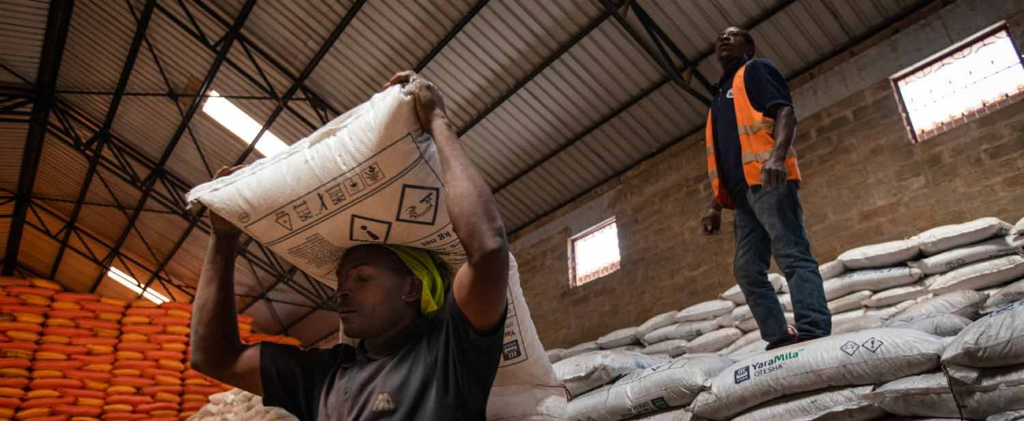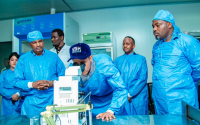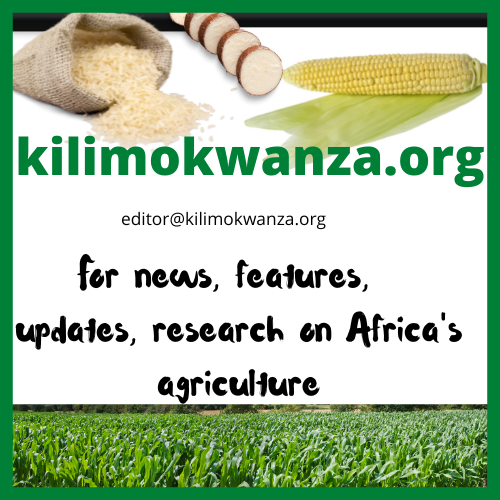Transformative Investment: The African Development Bank’s Pledge to Elevate Tanzania’s Agricultural Fortunes
In a landmark decision, the Board of Directors of the African Development Bank Group has set the stage for a revolutionary uplift in Tanzania’s food security and agricultural self-reliance. With a substantial approval of $73.5 million, the Tanzania Agricultural Inputs Support Project (TAISP) has been greenlit to increase the nation’s food production by an astounding one million tonnes within a span of three years.
The TAISP, running from September 2022 to June 2025, emerges as a proactive response under the Bank Group’s African Emergency Food Production Facility, which itself is an answer to the looming food crisis threats augmented by the war in Ukraine. Tanzania’s ambitions are bold, with an eye towards self-sufficiency in wheat and edible oil by 2030. This project’s funding structure is compelling, featuring a $2.5 million grant from the African Development Fund, the Bank Group’s concessional wing, paired with a $71 million loan. These figures amount to 87.3% of the project’s budget of $84.07 million, with the Tanzanian government contributing the remaining $11 million.
What does this financial influx mean for Tanzania? It is set to fortify the supply chain of climate-resilient seeds for wheat, sunflower, and rice. It promises the availability and affordability of fertilizers and backs policies enhancing the regulatory atmosphere for swift uptake of certified seeds and fertilizers. In essence, the initiative is not only a financial boost but also a structural reinforcement of Tanzania’s agricultural backbone.
Nnenna Nwabufo, the Bank’s Director General for East Africa, articulated the cascading effects of the ongoing global tensions, compounded by the COVID-19 repercussions, climate variability, and inflating fuel and fertilizer costs. This multifaceted crisis bears down significantly on poverty and food insecurity, with essentials like edible oils, rice, and wheat becoming more expensive, disproportionately affecting the poorest of households.
The country’s reliance on imports for over 90% of its wheat—of which 67% is sourced from Russia and Ukraine—coupled with significant imports of vegetable oils and fertilizers, underscores the urgency and significance of the TAI SP. The shockwaves from fuel and fertilizer market disturbances are poised to plunge an additional 1.2 million Tanzanians below the poverty line, with rural households facing the brunt due to their dependence on agriculture.
However, the project is a beacon of hope, with direct benefits earmarked for 1.2 million households. Moreover, it is an economic catalyst promising to enfranchise 1,000 small and medium-scale seed producers and agro-dealers. Employment prospects are also on the horizon, with 10,000 job opportunities slated for young women and men in the wheat, sunflower, and fertilizer sectors.
Land under wheat cultivation is expected to quadruple by 2025, from 100,000 hectares to 400,000 hectares. The project’s ambition doesn’t end there; it seeks to double the yields of wheat, sunflower, and rice by employing improved climate-resilient seeds.
Hussein Bashe, Tanzania’s Minister of Agriculture, reinforces the project’s alignment with the national Development Plan, aiming to escalate agricultural production, boost incomes, spur employment, and diversify agricultural products.
This funding is a part of the larger tapestry of the African Emergency Food Production Facility, approved by the Bank Group’s Board of Directors on May 20. This extensive facility is poised to provide 20 million African smallholder farmers with certified seeds, expand access to agricultural fertilizers, and catalyze the rapid production of 38 million tons of food—a move expected to amplify food production value by $12 billion over a mere two-year period.
The TAI SP is more than just a monetary injection into Tanzania’s agrarian sector; it is a strategic investment in its future. By focusing on creating an environment conducive to agricultural growth and sustainability, Tanzania is poised not just to feed its population but to become a beacon of agricultural success and a template for self-sufficiency across the African continent.
The ripples from this investment are bound to be felt far and wide, as Tanzania takes confident strides towards securing its food, fortifying its economy, and fostering a resilient agricultural sector capable of withstanding the global market’s vicissitudes. The African Development Bank Group’s commitment showcases an extraordinary partnership between the international financial community and African nations, aimed at harnessing the full potential of Africa’s agrarian landscape.



